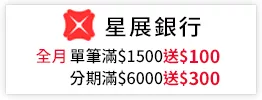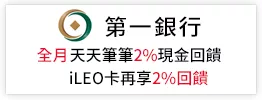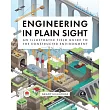Nadja Zeleznik, physicist, earned a master’s degree in physics and in reactor physics (Faculty of Mathematics and Physics) and a Ph.D. in psychology (Faculty of Arts), all from the University of Ljubljana, Slovenia. Dr. Zeleznik is a specialist in nuclear technology and radioactive waste management and for risk perception, communication, education and training in environmental projects. Her deliverables included strategies and programs for nuclear area, development of new legislation, cost assessment and investment programs for different projects, feasibility studies for environmental projects, remediation plans and their implementations, safety assessment and reports for nuclear facilities, radiological investigations and dose assessments, QA/QC plans and procedures, communication strategies and plans, assessments of public acceptability and related surveys, education and training in the communication and stakeholder involvement, development of information materials and tools and related research. She has been involved in more than 30 international projects and is an author of more than 200 papers and several chapters in books.
Jan Haverkamp is a senior nuclear energy and energy policy expert with the World Information Service on Energy (WISE) and Greenpeace Netherlands, and he is co-founder and board member of Nuclear Transparency Watch. He has a bachelor’s degree in biochemistry from the State University in Leiden, the Netherlands, and a bachelor’s and master’s degree (academic engineer - Ir.) in environmental sciences from Wageningen University, the Netherlands. Mr. Haverkamp’s work as developer of environmental organizations in Central Europe, as energy campaigner and nuclear energy specialist, brought him into contact with nuclear power and energy policy in all EU and EU accession countries operating, having operated, or having taken moves to operate nuclear power stations. Mr. Haverkamp also worked for four years as Greenpeace’s EU nuclear policy advisor in Brussels, among others, during the start of the Fukushima nuclear crisis and the following nuclear stress tests. He was involved in the development and following implementation of the Euratom Nuclear Safety Directive, the Nuclear Waste Directive and the Directive on Basic Radiation Standards. He has a long track record on issues of nuclear transparency, especially the implementation of the Espoo and Aarhus Conventions in the nuclear sector. He participates as an independent civil society expert in the European nuclear waste research project EURAD. Between 2004-2020, Mr. Haverkamp has taught in the environmental studies department of the Masaryk University in Brno, Czech Republic.
Niels Henrik Hooge (1956) LL.M., M.A., has a Master of Law and a Master of Arts in Philosophy, specializing in environmental law and environmental ethics, respectively. For several decades, he has been active and worked in and with the Danish and European NGO community in various fields and in different capacities. In 2014, he co-founded NOAH / Friends of the Earth Denmark’s Uranium Group. The group provides information on the nuclear fuel chain, including the environmental, energy, foreign, and security policy consequences of uranium extraction, processing, transport, and trade, as well as nuclear waste disposal. Representing NOAH, Mr. Hooge holds a seat in the national contact forum for nuclear waste under the auspices of the Danish Ministry of Higher Education and Science, which was established in 2016, and in the local contact forum in Roskilde Municipality, where the Danish radioactive waste will be stored in an interim storage facility for up to fifty years. Mr. Hooge participates as an independent civil society expert in the European nuclear waste research project EURAD.
Michal Daniska holds MSc degrees in nuclear and subnuclear physics and in applied mathematics and statistics and a PhD in general and mathematical physics from Comenius University in Bratislava, Slovakia. He is the founder and director of the civic association "We want a healthy country", a member of Nuclear Transparency Watch. Since 2019, Dr. Daniska has been fighting, through active participation in related proceedings, petitions, and other activities, for a healthy environment in the vicinity of the nuclear power plant in Jaslovské Bohunice, Slovakia. One of the main goals of the association is to stop incineration and other forms of treatment of foreign radioactive waste in Jaslovské Bohunice and to carry out monitoring of radioactive contamination and rehabilitation of the Manivier channel. In connection with this, the association seeks to increase transparency, as well as to strengthen the legal status of the public, in issues related to the nuclear industry in Slovakia. Dr. Daniska participates in the project EURAD as a civil society expert.
Dr. Johan Swahn was formerly the Director of the Swedish NGO Office for Nuclear Waste Review for 19 years, until December 2023. He led the organization’s work, including participating in the decision-making on Swedish repositories for radioactive waste together with the member organizations Swedish Society for Nature Conservation (Naturskyddsföreningen) and the Swedish Friends of the Earth (Jordens Vänner). Dr. Swahn has a Master of Science in Engineering Physics and a doctorate degree in Science, Technology and Global Security from the Chalmers University of Technology, Göteborg Sweden. Dr. Swahn is a member of the international advisory group of Danish Decommissioning; the Management Board of Nuclear Transparency Watch (NTW); and has been the coordinator of the NTW work on radioactive waste. He participated in the EU research project SITEX-II, has led a work package on civil society interaction/dissemination in the EU research project Beacon, and has participated in interaction with civil society in the EU joint programming project EURAD, especially the ROUTES work package. Dr. Swahn is a member of the International Panel for Fissile Materials, IPFM; International Nuclear Risk Assessment Group, INRAG; has been a member of the Scientific Board of the Swedish chapter of International Physicians for the Prevention of Nuclear War, IPPNW. Before his work at MKG, Dr. Swahn worked as a researcher and lecturer in the fields of energy, environment, and global security in the Department of Physical Resource Theory at the Chalmers University of Technology, Göteborg, Sweden. He has also studied one year of Radiation Physics at the University of Gothenburg/Sahlgrenska hospital.
Colin Wales started with a degree in systems and the environment in 1999. He holds a higher national certificate in Organic Chemistry and a diploma with merit in Sales and Marketing Management. He has challenged the Radioactive Waste Management (RWM) industry, both in Cumbria and the United Kingdom, in terms of transparency and public information. Mr. Wales has also set up Cumbria Trust, an NGO, member of two well-recognized networks (Nuclear Transparency Watch (NTW) and the SITEX.network), which is listened to locally concerning all matters related to nuclear. Furthermore, Mr. Wales has been proactively involved in various EURAD work packages as a civil society expert, namely ROUTES, UMAN, and MODATS.
Malcolm de Butler holds a MSc in Corporate Finance and Strategy (Institut Supérieur de Gestion (ISG), Paris, France), as well as a BA in Economics (University of Essex, Colchester, United-Kingdom). As coordinator of Nuclear Transparency Watch (NTW), since June 2021, he has been responsible in supporting executive management in driving the strategic development of the association, which has 60 members (experts, elected officials, and associations) from 26 European countries. Dr. de Butler has also been involved in the international relations of the association e.g., members of the European Parliament, European Commission (DG ENER), national authorities representative and other partners (OECD-Nuclear Energy Agency (NEA), International Atomic Energy Agency (IAEA), IRSN (Open Radiation), SITEX.Network, and EURAD. In EURAD, he has coordinated a team of 33 members of the civil society to enhance NTW’s participation to the 5-year European Joint Programme on Radioactive Waste Management EURAD (51 Mandated Organisations, 61 Linked Third Parties, 23 European countries and 3 International Partners). In this context, he was repeatedly invited to present the results from task 7 of the ROUTES work package to other members of EURAD and outside during international workshops or events, he also participated to the production of 3 deliverables on Transparency and Public Participation (T&PP) as Civil Society expert. Finally, he helped structure and organise 4 hybrid-workshops dedicated to interactions with the civil society: Fontenay-aux-Roses (France), Fontainebleau (France), Brussels (Belgium) and Ljubljana (Slovenia).



 天天爆殺
天天爆殺  今日66折
今日66折 




















 博客來
博客來 博客來
博客來 博客來
博客來 博客來
博客來 博客來
博客來